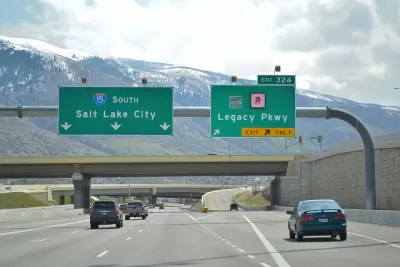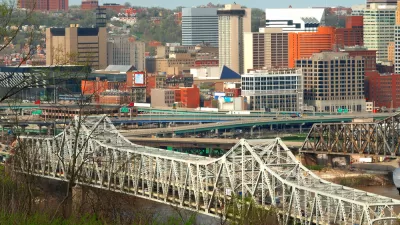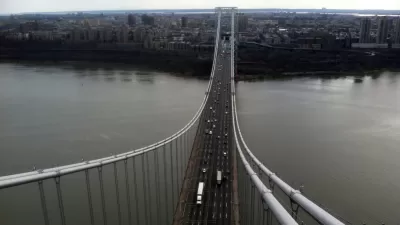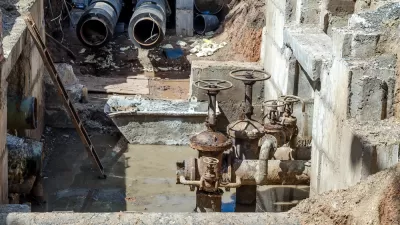Despite alarming claims about the nation's roads and bridges, a column in the Chicago Tribune argues that the administration's proposed infrastructure spending doesn't match actual needs.

Writing in the Chicago Tribune, Steve Chapman argues that the United States doesn't actually need President Biden's "infrastructure binge." Biden "made gaudy promises to 'transform' our transportation networks, 'revolutionize' railroads and urban transit, and upgrade water systems, broadband, bike lanes, home weatherization and just about anything else you could think of," according to Chapman, writing before reports of the Biden administration developing a $3 trillion infrastructure plan broke.
Yet reports from the Reason Foundation and the Milken Institute Review show less-than-alarming numbers when it comes to the country's roads and bridges. The Reason Foundation's Annual Highway Report found that "the percentage of urban interstates rated in poor condition was lower in 2018 than a decade earlier," and, according to Brown University economist Matthew A. Turner, "investment in the interstate, in bridges and in public transit buses has matched or exceeded depreciation over the past generation."
Chapman argues that it should be up to states and localities to fund the infrastructure projects that affect them. "The great majority of infrastructure assets are owned by state and local governments, and it’s their constituents who would gain the most from resurfacing roads or bolstering bridges," he writes. "If they are going to reap the economic benefits of such investments, shouldn’t they be willing to pay for them?"
Others contend that many major infrastructure projects require federal oversight and funding, and that federally funded projects create well-paying, long-term jobs and economic opportunity. An October 2019 report from the House Budget Committee states that "federal support is especially important for larger-scale projects that affect multiple jurisdictions, require a broader source of revenues than is available to local communities, or create or sustain public goods that should be widely available to all."
FULL STORY: We don't need Biden's infrastructure binge

Maui's Vacation Rental Debate Turns Ugly
Verbal attacks, misinformation campaigns and fistfights plague a high-stakes debate to convert thousands of vacation rentals into long-term housing.

Planetizen Federal Action Tracker
A weekly monitor of how Trump’s orders and actions are impacting planners and planning in America.

San Francisco Suspends Traffic Calming Amidst Record Deaths
Citing “a challenging fiscal landscape,” the city will cease the program on the heels of 42 traffic deaths, including 24 pedestrians.

Opinion: What San Francisco’s Proposed ‘Family Zoning’ Could Really Mean
Mayor Lurie is using ‘family zoning’ to encourage denser development and upzoning — but could the concept actually foster community and more human-scale public spaces?

Jacksonville Launches First Autonomous Transit Shuttle in US
A fleet of 14 fully autonomous vehicles will serve a 3.5-mile downtown Jacksonville route with 12 stops.

‘Big, Beautiful Bill’ Guts EV Tax Credits
The bill eliminates federal subsidies for electric vehicle buyers and charging stations.
Urban Design for Planners 1: Software Tools
This six-course series explores essential urban design concepts using open source software and equips planners with the tools they need to participate fully in the urban design process.
Planning for Universal Design
Learn the tools for implementing Universal Design in planning regulations.
Gallatin County Department of Planning & Community Development
Heyer Gruel & Associates PA
JM Goldson LLC
City of Camden Redevelopment Agency
City of Astoria
Transportation Research & Education Center (TREC) at Portland State University
Jefferson Parish Government
Camden Redevelopment Agency
City of Claremont





























